CMN 324
Strategic Storytelling in Industry

1. Course Description
Stories are vibrant forms of expression that can engage others, promote values, encourage creativity, and inspire action. Students will learn the power and craft of storytelling as a professional communication strategy. Students will analyze basic concepts of narratology, examine case studies that illustrate a range of storytelling principles and practices, master a set of techniques for successful storytelling, and consider how new technologies suggest new ways of telling stories.
Last Revised
Prerequisites
CMN 200 or CMN 279. Note: This course is available only to Professional Communication and Creative Industries students
Delivery
Lecture: 3 hours
2. Course Objectives & Learning Outcomes
By the end of this course students will be able to
- Use analytical vocabulary related to narratology effectively
- Identify and assess the narrative and storytelling practices present in organizations
- Develop storytelling practices for specific organizations
- Develop their own storytelling abilities
- Understand and apply ethical principles for storytelling
3. Topics Covered
Narrative terminology related to
- Character structure
- Stylistic choices
- Media platform choices
Personal storytelling
- Identity construction and management
Storytelling organizations
- Political
- For profit
- Non profit
- Healthcare
Role of storytelling in organizations
- Branding
- Marketing
- Human relations
- Social media management
- Knowledge transfer and management
4. Teaching Method
Class Delivery
Classes will consist of lectures, discussion, and workshops.
Evaluation Methods
Evaluation will be based on a minimum of three assignments with written components in addition to other assessments
5. Course Materials
Readings and other materials will be posted in D2L.
6. Policy
6.1 University Policies
Students are required to adhere to all applicable university policies found in their Online course shell in D2L and the Course Outline Policies.
6.2 Print and Digital Copying Guidelines:
Toronto Metropolitan University complies with Canada’s Copyright Act which protects both creators/owners and users of copyrighted materials. Students should familiarize themselves with TMU Copyright policies and procedures, and contact the Copyright and Scholarly Engagement Librarian at copyrt@torontomu.ca for questions, concerns and clarification of the copyright rules.
6.3 Turnitin.com
Turnitin.com is a plagiarism prevention and detection service to which Toronto Metropolitan University subscribes. It is a tool that helps instructors determine the similarity between student work and the work of other students who have submitted papers to the site (at any university), Internet sources, and a wide range of books, journals, and other publications. While it does not contain all possible sources, it gives instructors some assurance that students’ work is their own. No decisions are made by the service; it generates an “originality report,” which instructors must evaluate to judge whether something is plagiarized.
Students agree by taking this course that their written work will be subject to submission for textual similarity review to Turnitin.com. All submitted papers will be included as source documents in the Turnitin.com reference database solely for the purpose of comparing the similarity of such papers. Use of the Turnitin.com service is subject to the terms-of-use agreement posted on the Turnitin.com website. Students who do not want their work submitted to this plagiarism detection service must, by the end of the second week of class, consult with their instructor to make alternative arrangements. Even when an instructor has not indicated that a plagiarism detection service will be used, or when a student has opted out of the plagiarism detection service, if the instructor has reason to suspect that an individual piece of work has been plagiarized, the instructor is permitted to submit that work in a non-identifying way to any plagiarism detection service.
6.4 Email Communication
Toronto Metropolitan University requires that any official or formal email communication from students be sent from their official Toronto Metropolitan University electronic accounts.
6.5 Video and Audio Recording
No video or audio recording is permitted in class without the express permission of the instructor.
7. Learning Management System
Toronto Metropolitan University supports Brightspace by D2L as its official Learning Management System. University Policies governing Brightspace have been documented at the Courses @ Toronto Metropolitan University Privacy and Security website.

